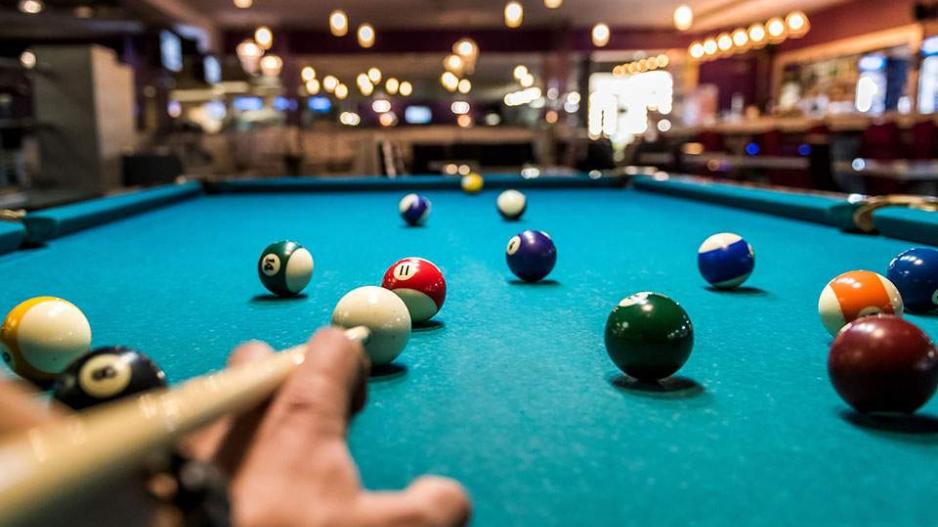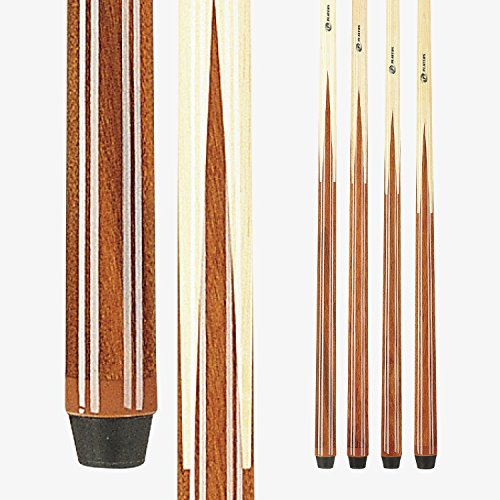Alright, listen up, pool enthusiasts! If you've ever stepped into a pool hall and wondered what makes a house cue tick, you're in the right place. Best house pool cues aren’t just random sticks lying around—they’re tools that can make or break your game. Whether you're a beginner or a seasoned player, understanding the ins and outs of house cues is crucial. Let’s dive in and uncover the secrets behind these underappreciated gems.
Picture this: you walk into your local pool hall, grab a random stick off the rack, and start playing. Sounds familiar? Well, my friend, you’re missing out on a world of possibilities. A house cue is more than just a stick; it’s a gateway to improving your skills and enjoying the game to its fullest. But how do you choose the best house pool cue? That’s what we’re here to figure out.
This comprehensive guide will walk you through everything you need to know about house cues. From the materials used to the techniques you can employ, we’ll make sure you’re equipped with the knowledge to enhance your game. So, grab a drink, settle in, and let’s get started!
Table of Contents:
- What Is a House Pool Cue?
- Materials Used in House Pool Cues
- Choosing the Best House Pool Cue
- Maintenance Tips for House Cues
- Common Mistakes to Avoid
- Enhancing Your Game with a House Cue
- Long-Tail Keywords and Variations
- Expert Recommendations
- Frequently Asked Questions
- Conclusion: Your Next Move
What Is a House Pool Cue?
Let’s start with the basics. A house pool cue is essentially the cue stick provided by a pool hall or bar for public use. These sticks are designed to be durable, easy to maintain, and accessible to everyone. But here’s the kicker—they’re not all created equal. Some house cues are absolute gems, while others might leave you scratching your head. So, how do you spot the good ones?
House cues are typically shorter and heavier than custom cues, which makes them great for beginners who are still getting the hang of the game. They’re also built to withstand a lot of wear and tear, meaning they can handle the abuse of frequent use without falling apart. But hey, that doesn’t mean you should treat them like garbage. Respect the stick, and it’ll respect you back.
Why Are House Cues Important?
Think about it: if you’re playing with a subpar cue, your game is gonna suffer. A good house cue can help you develop proper technique, consistency, and confidence. It’s like having a reliable partner in crime—well, maybe not crime, but you get the idea. Plus, using a decent house cue can save you money in the long run, especially if you’re not ready to invest in a custom stick just yet.
Materials Used in House Pool Cues
Alright, let’s talk materials. The quality of a house cue largely depends on what it’s made of. Here’s a quick breakdown of the most common materials you’ll find:
- Maple Wood: Known for its durability and affordability, maple is a popular choice for house cues. It’s lightweight and provides a smooth feel, making it ideal for beginners.
- Hardwood: Hardwood cues are heavier and more robust, perfect for those who prefer a bit of heft in their stick. They’re also less likely to warp over time.
- Fiberglass: Fiberglass cues are super durable and resistant to moisture, which is why they’re often used in humid environments. They might not have the same feel as wood, but they get the job done.
- Carbon Fiber: For those who want the best of both worlds, carbon fiber cues offer a balance of strength and flexibility. They’re pricier than other options but worth it for serious players.
Now, here’s the deal: not all house cues are made from high-quality materials. Some places might cut corners to save money, so it’s important to inspect the stick before you play. Look for signs of wear, warping, or unevenness. If it feels off, don’t hesitate to grab another one.
Choosing the Best House Pool Cue
Finding the best house pool cue isn’t rocket science, but it does require a bit of know-how. Here are some key factors to consider:
Weight and Length
House cues typically range from 18 to 21 ounces in weight and 57 to 58 inches in length. If you’re new to the game, a mid-weight cue (around 19-20 ounces) is a safe bet. As for length, shorter cues are easier to handle in tight spaces, while longer ones provide more reach. It all boils down to personal preference, so experiment until you find what works for you.
Balance and Feel
The balance of a cue is crucial for accuracy and control. A well-balanced cue should feel comfortable in your hands and allow for smooth strokes. If it feels too heavy or too light, it might not be the best fit. Trust your instincts here—your body knows what it needs.
Shaft Quality
The shaft of a cue is where the magic happens. A high-quality shaft will provide better control and accuracy, especially when it comes to spin shots. Look for cues with a smooth, consistent finish and minimal defects. If the shaft feels rough or uneven, it’s probably not the one for you.
Maintenance Tips for House Cues
Okay, so you’ve found a decent house cue. Now what? Taking care of it is just as important as choosing it. Here are some maintenance tips to keep your stick in top shape:
- Clean Regularly: Wipe down the cue after each use to remove dirt and oils. A soft cloth or cue cleaner will do the trick.
- Store Properly: If you’re allowed to store your cue at the pool hall, make sure it’s in a safe, dry place. Avoid leaving it near windows or in direct sunlight, as this can cause warping.
- Check for Damage: Inspect the cue regularly for cracks, chips, or other signs of wear. If you notice any issues, report them to the staff so they can replace it.
Remember, a well-maintained cue is a happy cue. Treat it right, and it’ll reward you with better performance on the table.
Common Mistakes to Avoid
Even the best players make mistakes, but that doesn’t mean you have to. Here are some common errors to watch out for when using a house cue:
- Using a Damaged Cue: Don’t play with a cue that’s warped, cracked, or otherwise damaged. It’ll only hinder your game and frustrate you.
- Overgripping: Holding the cue too tightly can affect your accuracy and control. Practice a relaxed grip to improve your technique.
- Ignoring the Shaft: The shaft is one of the most important parts of the cue, so don’t neglect it. Keep it clean and in good condition for better performance.
By avoiding these mistakes, you’ll be well on your way to becoming a pool hall legend. Trust me, your opponents will notice the difference.
Enhancing Your Game with a House Cue
Now that you know how to choose and maintain a house cue, it’s time to put that knowledge into practice. Here are some tips to help you enhance your game:
Practice Consistently
The more you play, the better you’ll get. Set aside time each week to practice with a house cue, focusing on your technique and accuracy. Consistency is key, so don’t get discouraged if you don’t see results right away.
Experiment with Shots
Don’t be afraid to try new things on the table. Practice different types of shots, such as draw shots, bank shots, and spin shots, to expand your skill set. A good house cue will give you the control you need to pull off these moves.
Learn from Others
Observe other players and take note of their techniques. You might pick up a trick or two that you can incorporate into your own game. Plus, it’s always fun to chat with fellow pool enthusiasts and exchange tips.
Long-Tail Keywords and Variations
Let’s sprinkle in some long-tail keywords to make this guide even more comprehensive:
- Best house pool cue for beginners
- How to choose a good house cue
- House cue maintenance tips
- Improving your pool game with a house cue
- Common issues with house pool cues
These variations will help you target a wider audience and provide more value to your readers. Win-win, right?
Expert Recommendations
According to pool experts, a good house cue should meet the following criteria:
- Constructed from high-quality materials
- Well-balanced for optimal performance
- Easy to maintain and durable
- Comfortable to hold and use
Experts also recommend practicing with a variety of cues to develop adaptability and versatility. This will make you a stronger player in the long run.
Frequently Asked Questions
Got questions? We’ve got answers. Here are some common FAQs about house pool cues:
- Q: Can I bring my own cue to a pool hall? A: Most pool halls allow you to bring your own cue, but it’s always a good idea to check their policies first.
- Q: How often should I clean my house cue? A: Ideally, you should clean your cue after every use to keep it in top condition.
- Q: Are house cues good for beginners? A: Absolutely! House cues are designed to be user-friendly and accessible to players of all skill levels.
Conclusion: Your Next Move
There you have it—a comprehensive guide to finding and using the best house pool cue. From materials and maintenance to tips and tricks, we’ve covered everything you need to know to enhance your game. Remember, practice makes perfect, so don’t be afraid to hit the pool hall and put your newfound knowledge to the test.
Before you go, here’s a quick recap of the key points:
- Choose a cue that feels comfortable and balanced
- Maintain your cue regularly to ensure optimal performance
- Practice consistently and experiment with different shots
- Learn from others and stay open to new techniques
Now, it’s your turn. Leave a comment below and let us know how this guide has helped you. Or, if you’re feeling generous, share it with your pool-playing friends. Together, we can raise the bar and become the ultimate pool pros. Cheers to that! And remember, the best house pool cue is just a step away from making you a legend on the table.

![5 Best House Pool Cue Set [Rated Guide] Pool cues, Pool houses, Pool](https://i.pinimg.com/736x/2f/42/49/2f424919fa96e8ef5fb48b8f19bbb837.jpg)
